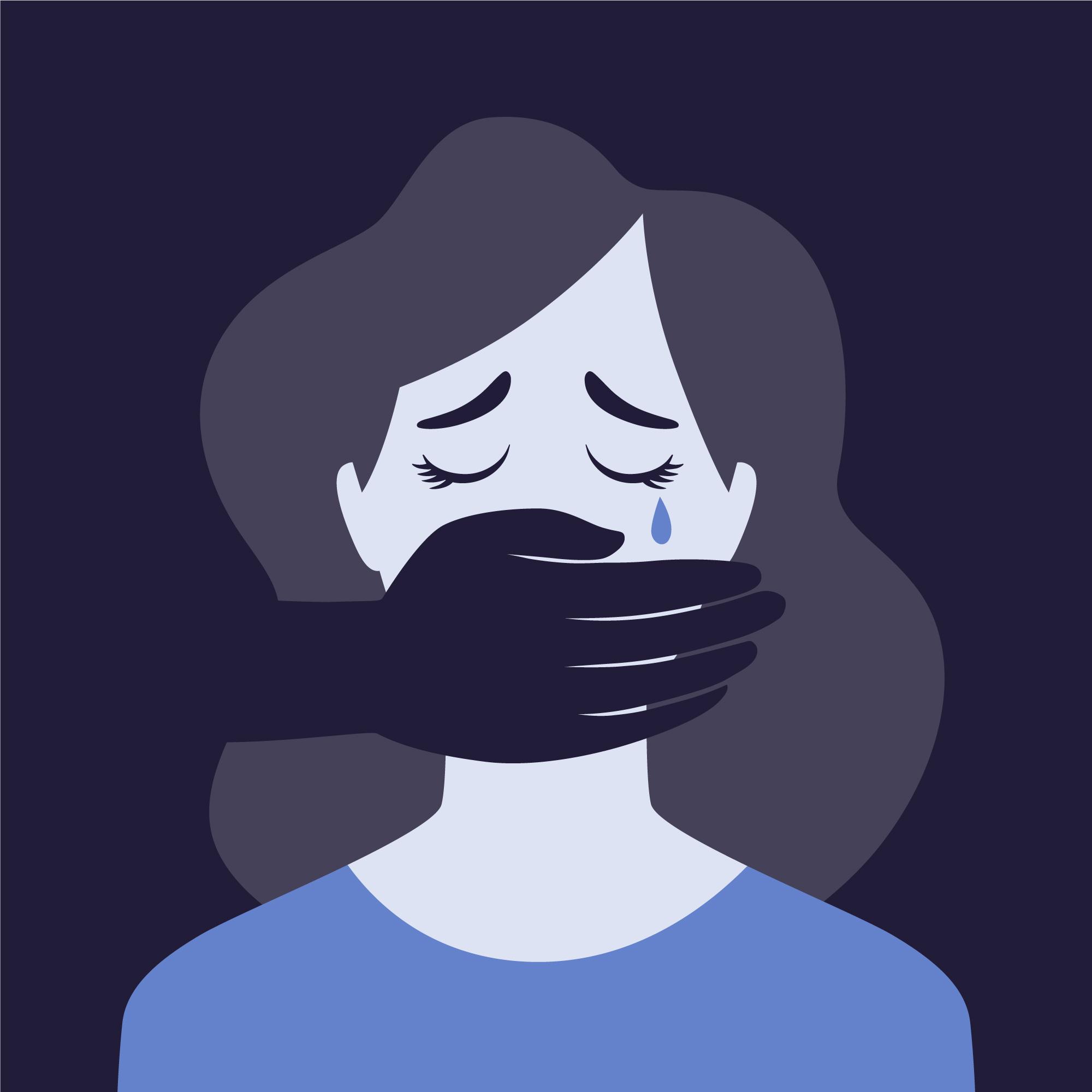On raising a badass advocate, unintentionally.
I didn’t set out to raise an advocate—I set out to raise a child.
A child who might feel safe in her body and steady in her breath, who might look out at the world and feel drawn toward it rather than braced against it, who might trust her teachers the way children are meant to trust the adults who greet them each morning: not perfectly, not blindly, but with a baseline expectation that care would come first.
I thought, if I did my part—if I showed up to meetings, filled out the forms, listened to the advice, adjusted the language, took the high road, softened the ask, played the long game—that maybe the system would meet us halfway. Maybe she’d get to be a kid first, and an advocate later.
But that’s not what happened.
What happened was something slower, and sadder, and much harder to name—a kind of apprenticeship conducted in the language of grief. She watched me come apart in emails and meeting rooms and parking lots, watched me try to thread the needle between evidence and emotion, between rage and restraint, between clarity and collapse.
She watched the system say we care about your child while stripping away the supports that made it possible for her to stay in the classroom. She watched professionals lean on phrases like we’re reviewing the plan or we’re working to build resilience—and learned, before she should have had to, that the presence of polished language is not the same as the presence of care.
She did not become an advocate because I taught her how to speak up; she became one because she watched what happens when you do speak up—and no one moves. Because she saw how often harm is reframed as misunderstanding, how often neglect is dressed up as a resource issue, how often children like her are asked to be grateful for what remains.
This was not a planned curriculum. It was a crash course in surviving systems that apologise instead of change.
And she passed it far too young.
The first lesson is hunger
There was a medical letter. A simple, clear request. Jeannie was to have unrestricted access to snacks throughout the day, because managing Avoidant/Restrictive Food Intake Disorder (ARFID) is not a behavioural preference or a reward for good conduct—it is a medical need, a safety anchor, and in her case, one tied closely to anxiety, dissociation, and physical dysregulation.
What she was offered instead was a workaround—the “work table,” also known as the timeout area, also known as the place you’re sent when you’ve failed to meet behavioural expectations—became the designated zone for eating.
And while it might seem like a small detail to someone trained to see policy first and children second, the association was immediate and inescapable: if I eat when I need to, I will be marked as misbehaving. If I follow my body’s cues, I will be isolated. If I meet my needs, I will be visible in the wrong way.
So she didn’t go.
And so she didn’t eat.
And her body, already bracing itself each day against a barrage of sensory, emotional, and social stressors, began to learn that asking for help could make things worse, not better—and that sometimes staying quiet is the only way to stay in the room.
She started to think of her aversion to eating as part of her personality. Boy, she’s tough.
-
Apparently, starving yourself isn’t a serious mental health condition in VSB
There is a kind of harm that unfolds slowly — a hunger that accumulates across weeks and months, tucked beneath the surface of routines and well-meaning systems. My daughter is autistic, has ADHD, and a feeding disorder called ARFID. She eats quietly, cautiously,…
The second lesson is silence
She was removed from a field trip—sent home early—because she tipped her chair and called out, behaviours that anyone familiar with hypermobility, sensory overwhelm, ADHD, or autistic communication patterns would immediately recognise as signals, not defiance, but there was no lens of understanding in place, only the lens of rules, and so the response was swift and exclusionary.
She didn’t get support. She didn’t get a quiet check-in, or a whispered plan, or even a chance to repair.
She was simply gone.
And the humiliation—of being made the problem in a space meant to expand her world—cut more deeply than any disciplinary note ever could, because it confirmed what her nervous system already suspected: your belonging is conditional, and if you behave outside the expected frame, you will be removed rather than understood.
She learned, without anyone saying it outright, that the best way to stay in the room is to disappear inside yourself.
-
Not sick. Not fine. Not supported. Sexism in Vancouver School Board.
They said she was doing well. They said it with the softness of authority — that practiced tone that suggests neutrality while sidestepping consequence — a tone I’ve come to recognise as institutional, not personal, and absolutely not maternal. They said she was…
The third lesson is restraint
Jeannie reported that a staff member grabbed her wrist while she was trying to walk away from a playground interaction. The principal later confirmed that the staff member had, in fact, grabbed her wrist after making a remark—“Are you hard of hearing?”—that Jeannie found deeply hurtful. Deafness should not be an insult, Jeannie said, when she told me the story, frantic with upset. She’s not allowed to touch me.
My daughter, who has hypermobile joints, described experiencing pain and shock as a result of the contact.
We were told the matter would be referred to Labour Relations, and that the staff member would no longer supervise or engage with her.
But in the weeks that followed, Jeannie repeatedly reported that the same staff member continued to approach her, trying to speak with her despite our clear boundary. When I raised this with the school, I was told again that contact had been discouraged—but the contact kept happening. Eventually, I was informed that the investigation was over and no further changes were indicated.
At that point, my trust in the school’s judgment fractured. I made it clear that continued interaction would require further escalation.
From then on, Jeannie defended herself—by walking away, by setting hard verbal boundaries, and by deciding she would not wait for protection from people who had already failed to offer it.
The fourth lesson is removal
Again and again, the accommodations Jeannie relied on to regulate, participate, and stay connected were withdrawn:
- the exercise ball, because it had been thrown
- the fidgets, because they were too distracting
- the flexible seating, because too many children wanted it
—and with each removal, Jeannie was shown, whether directly or through silence, that her access to accommodation was conditional, her needs negotiable, and that fairness, as defined by school policy, meant equal restriction rather than meaningful support.
So she stopped asking, stopped hoping, and began instead to claim what she needed with her body, her tone, her refusal—and eventually, with her voice.
She walked out of the classroom, when she needed to, because it would not adjust to her. She sat in the hallway for seven months until the school would adjust the classroom. Because her needs are not negotiable.

The fifth lesson is the body
The school taught Jeannie many things—but among the most lasting was this: your body is not sacred here. It can be bumped, restrained, grabbed, hurt—and nothing will necessarily happen.
She told me, recently, with the quiet finality of someone who no longer expects surprise, “No one’s going to protect my body. If I want to be safe, I have to make sure no one touches me. Telling the principal doesn’t help.”
She was not being dramatic. She was summarising data.
The data said: a playground staff member could twist her wrist and still be allowed near her. The data said: boys could hit, grab, or taunt without consistent consequence. The data said: her discomfort was always second to someone else’s learning moment, someone else’s right to the space, someone else’s needs, someone else’s intent.
So she made a new plan.
She said, “You have to go for the jugular immediately. You have to say something so brutal, so clear, that they flinch—so they won’t try again. They have to know that you’ll react with extreme violence.”
And while I wish she had never learned that, I cannot fault her logic. In a system where adult intervention is delayed, inconsistent, or absent, children develop their own methods. Girls especially. Disabled girls especially.
A child building a perimeter around her body using the only tools that work: words sharpened into weapons. Tone calibrated for defense. A presence built to make people pause before they touch.
She did not choose this strategy because it makes her feel strong. She chose it because it’s the only one that has worked.
And she shouldn’t have had to.
The final lesson
And now, when she speaks, she doesn’t sound like her old self. She’s not timid and she doesn’t perform gratitude for supports that should never have been negotiable.
She speaks in rooms full of adults with titles like Director of Inclusion and Associate Superintendent.
And when they ask her to greet new staff with open arms, she says: I’m not going to be rude—but I’m not going to pretend to feel safe with people I don’t know. When they say trust the process, she says: I’ve done that before and it made things worse. When they say offer grace, she says: I don’t know what you mean by grace.
We think they mean not autistic.
She does not defer or apologise for her fear. She does not mistake being agreeable for being protected—and she knows the difference down to her bones.
She has learned, painfully and early, what it costs to mask distress, to guard adults from their own discomfort, to wait patiently for justice that never arrives. She has learned that people will ask her to try again while failing to keep her safe, that they will praise her resilience while removing the tools she needs to survive. She has learned to name what’s missing without flinching—respect, boundaries, protection, follow-through—and to demand it with composure sharper than many adults manage.
-
IEP goals that don’t mean ‘don’t be autistic’
Too many IEPs include goals like “will self-regulate” or “will self-advocate”—goals that sound supportive, but often mean “will not disrupt,” “will not need help,” or “will not act autistic at school.” This post explores how seemingly neutral language can become a tool for…










